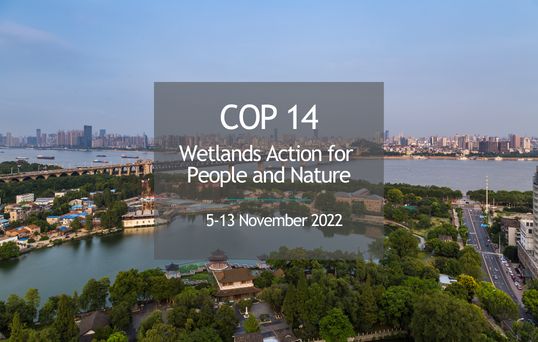Algeria was dealt a slap in the face after the Contracting Parties to the Ramsar Convention on Wetlands have unanimously rejected a draft resolution submitted by Algiers, seeking to revise the Ramsar Criteria, and downgrade sites on the Ramsar List.
During the 14th Conference of the Contracting Parties to the RAMSAR Convention on Wetlands (COP14), held in a hybrid format in Wuhan and Geneva, on November 5-13, the draft was submitted for consideration and adoption.
Nevertheless, a significant majority of delegations, from all over the world, stood up against this draft, pointing out its political character, detrimental to the proper functioning of the Convention.
The delegations were unanimous on the impertinence of the Algerian proposal, consisting in proceeding to the declassification of RAMSAR sites for political considerations, at a time when international efforts must be mutualized to preserve the RAMSAR sites.
They explained that the inclusion of wetlands on the RAMSAR list is based on their international importance from the ecological, botanical, zoological or hydrological point of view, as stipulated in the provisions of its Article 2.2.
The subscription of wetlands on the RAMSAR list is an international recognition of the importance of these environments in order to preserve them, for the interest of the conservation and the connectivity of natural habitats in favor of migratory species and water birds.
This inscription constitutes also a lever for the respect of the sites by the international community, by the riparian populations and in particular by the authorities governing them, which are called to take it into account in development plans and in economic, social and environmental policies, so as to support the conservation and the rational use of these ecosystems.
Moreover, while stressing the controversial and politically motivated nature of the Algerian draft, these delegations unanimously expressed their commitment to the scientific and environmental goals of this Convention, and to reject any maneuver aimed at polluting the debates within this UN body, and undermining the constructive spirit and serenity that have always prevailed in the exchanges between the Contracting Parties of this Convention.
Faced with the unanimous rejection of this draft resolution, it was decided to postpone discussions on the draft resolution to the next COP15, which will be held in three years.
Thus, the Algerian draft resolution is the only draft that was withdrawn from discussions during this session and postponed to the next COP15, while 21 other draft resolutions were adopted.
During this COP14, Morocco was elected, within the Standing Committee of the RAMSAR Convention, as the representative of the North African sub-region for the period 2022-2025.
This election “will allow Morocco to be part of the regional representatives for Africa in this subsidiary body and make the voice of the region heard in order to meet the challenges of conservation and restoration of African wetlands,” the National Agency for Water and Forests (ANEF) said in a statement.
On the sidelines of the COP14 plenary, ANEF organized, on November 9, 2022, a side event on wetlands in Morocco that was attended by a large number of African and Mediterranean countries.
Also, during the COP14, the city of Ifrane has received the “Wetland City Accreditation” Label by the RAMSAR Convention, among 25 other cities from 12 countries that have demonstrated strong and positive links with wetlands.
Ifrane has become the second Arab and North African city on the RAMSAR list of accredited cities, which is a recognition of Morocco’s commitment to safeguard its urban wetlands for the benefit of people and nature.
